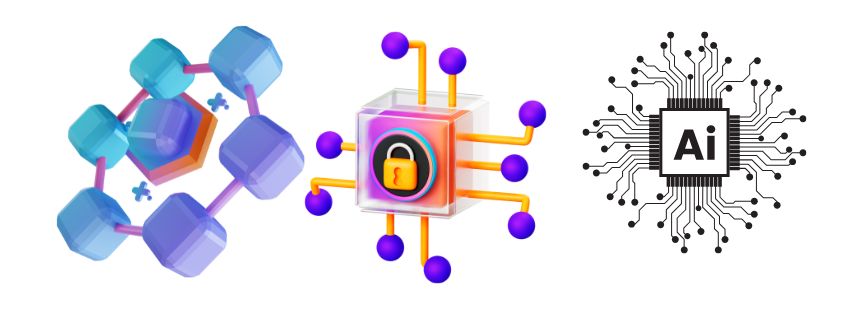
In an era defined by rapid technological advancement, the convergence of Artificial Intelligence (AI) and Blockchain stands out as a revolutionary milestone. Both technologies, while transformative on their own, promise to create unprecedented opportunities when combined. Let’s explore the future of AI and Blockchain and how they are set to redefine industries worldwide.
1. The Synergy of AI and Blockchain
AI excels in processing vast amounts of data, identifying patterns, and making decisions based on predictive analytics. Blockchain, on the other hand, provides a decentralized, immutable, and transparent ledger for recording transactions or data. Together, they can:
Enhance Data Security: Blockchain’s encryption ensures the data processed by AI remains tamper-proof and secure.
Improve Transparency: AI algorithms can operate on blockchain-verified data, fostering trust in decision-making.
Decentralize Intelligence: Blockchain enables AI models to be distributed across multiple nodes, reducing single points of failure.
2. Transforming Key Industries
a. Healthcare
AI Applications: Diagnosing diseases, personalized medicine, and predictive healthcare analytics.
Blockchain Applications: Secure sharing of patient records, ensuring data privacy, and preventing counterfeit drugs.
Future Impact: Together, they can create a seamless ecosystem where AI analyzes patient data stored securely on a blockchain, enabling faster and more accurate treatments.
b. Finance
AI Applications: Fraud detection, automated trading, and credit scoring.
Blockchain Applications: Transparent transactions, smart contracts, and decentralized finance (DeFi).
Future Impact: Combining AI’s analytical power with blockchain’s transparency can mitigate fraud, streamline operations, and democratize financial services.
c. Supply Chain
AI Applications: Demand forecasting, inventory management, and route optimization.
Blockchain Applications: Real-time tracking, provenance verification, and transparent supply chains.
Future Impact: Blockchain ensures the authenticity of goods, while AI optimizes supply chain efficiency, reducing costs and increasing reliability.
3. Overcoming Challenges
While promising, the integration of AI and Blockchain faces challenges:
Scalability: Blockchain’s transaction speeds must improve to match AI’s real-time processing requirements.
Energy Consumption: Both technologies can be resource-intensive, necessitating greener solutions.
Interoperability: Standards must be developed to ensure seamless integration across platforms.
4. Emerging Trends
AI-Powered Smart Contracts: AI can enhance the functionality of blockchain-based smart contracts, automating complex agreements with real-time data analysis.
Decentralized AI Models: AI algorithms hosted on blockchain networks can be accessed globally, promoting collaboration and innovation.
Tokenized AI Services: Blockchain can tokenize AI models, enabling businesses to purchase AI-driven insights or solutions as a service.
5. The Road Ahead
The future of AI and Blockchain is bright, with their combined potential poised to:
Redefine Trust: Decentralized AI ensures ethical and unbiased decision-making, fostering greater trust.
Accelerate Innovation: Industries can innovate faster by leveraging the strengths of both technologies.
Empower Individuals: Decentralized systems give users more control over their data and decision-making processes.
